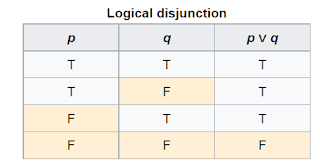“Time is like a sword: if you don’t cut it, it cuts you.” — Arabic proverb
Data science is boundless. Taking everything into account, nobody has at any point figured out how to complete information science. However many have figured out how to become data scientists.
In all honesty, turning into an data scientist is simple.
It's simple in light of the fact that an data scientist is just an information performer. What's more, this doesn't take a technical genius — particularly with an associate like Python.
Indeed, it's demoralizing to see something like "turning into an data scientist is precarious," "AI is hard," tormenting the web.
Trust me; any place your data science venture takes you, you'll ultimately wind up intersection the "data scientist" finish line. The lone variable in question is time.
What amount of time does it require to turn into an data scientist?
In reality, there are just two different ways to immediately turn into an data scientist. The main way is to utilize a time machine. The subsequent one is to utilize this article. In the event that you realize a third, let me know.
At any rate, in the event that you can utilize the principal way, there's no requirement for you to keep perusing. Also, If you're interested about the subsequent way, stay with me.
Indeed, since you're still here, I accept that you're interested. Along these lines, right away, we should start.
Start With Math
I know, I know. Learning math sets aside time since it's promoted to be troublesome, in spite of the fact that I don't think it is.
Math will assist you with doing that. This is on the grounds that PCs exclusively get numbers. What's more, coding requires criticality.
For instance, contingent explanations are simply founded on rationale math. Sadly, I more than once see these assertions mishandled without anyone else declared information researchers, which makes me wince.
I flinch since rationale reduces to these basic two truth tables:
The basics are:
- Variables and data structures
- Conditional branching
- Looping
- modules imports
- Object-Oriented Programming
- Functions
Non-basics are:
- Decorators
- Polymorphism
- Recursion
Equipped with maths, you should be able to nail the basics on top of writing clean code.
What has maths to do with clean code, you would say?
The answer is again logic and structured thinking. Math is quite good in tidying up your thoughts.
In addition to that, you should get used to searching for code solutions on the web. Whatever challenge you face, paste it on Google, and it’s highly unlikely that no one has ever faced the same challenge as you did.
Doing this will save you ages of struggle.
Needless to say that we’re talking about Python here.
Stop Collecting Data Science Certificates
What does a newbie do in the age of technology when they single out data science as their career path?
They keep stacking data science certificates and share them on LinkedIn.
What’s the probability of failing to earn those certificates?
Close to zero.
Personally, I’ve always wondered why people keep bragging about their data science achievements. I’ve never done that, and I don’t have the slightest intention of doing it anytime soon.
Data science certificates are like a drug. Some people would skip video lessons, run the code solution without knowing what it is about for the sake of earning the final good-looking, sharable certificate. That’s time wastage.
The point, however, from data science courses is to help you test the water and know what to expect from the field and whether or not it’s the right career path for you, aside from the monetary appeals.
If you want to become a data scientist for money, you’d better raise the bar a little and try to become a doctor. They earn twice as much as data scientists.
Now, to get the most out of the data science certificates, you should pick courses wisely.
For example, a few years back, I took a course from Coursera delivered by IBM called “Introduction to artificial intelligence (AI).” Honestly, it was a complete waste of time. The course was 8 hours long. The content was pretty much centered around answering one question: what are the advantages of AI. Something you could spend 10 min or less on.
But, in the end, I learned an important lesson from the experience. That is to run away as far as I can when I see a course without a problem to solve or without code. This is crucial.
Become a Kaggler
Kaggle is the stronghold of data scientists.
Firstly, Kaggle boasts of an extensive up-to-date batch of datasets that spares you the trouble of searching for raw data or scraping it.
Scraping data is not as easy as it might sound. Some websites, such as Facebook and LinkedIn, have strict policies against data scraping and data crawling. One should be ready to say goodbye to their account if they were busted.
Secondly, you should know that data training, an essential part of the data science pipeline, requires tremendous computational power.
Kaggle offers exactly that by providing access to state-of-the-art machines through their servers. This means that you don’t need a high-end computer to run your models on, saving you a great deal of time and resources.
Thirdly, Kaggle has a vibrant and supportive community geared towards data science. Whenever you have a data science question, head to the discussion section, check out the already existing threads, or you can start your own.
Best of all is that Kaggle instills a competitive spirit in its members by providing monetary rewards to the best data scientists out there.
So why wait?
Join Kaggle and start sowing and reaping knowledge.
Make a Code Diary
A distinguishable internet feature is that often you set out to find something only to find some hidden gems in the process.
This was a huge waste when I started coding back in the day.
You see, when I used to get stuck in implementing a code feature, I’d often look up a part of the solution and rarely the whole thing. The silly mistake that I’d make is meeting a striking feature on the way, appreciating it, and moving on as if nothing has happened.
Later on, I’d face a problem that would require the implementation of nearly the same feature. My memory would let me down in both remembering the code and the source of information. And there I’m lost in StackOverflow, Kaggle, and the likes for ages.
To avoid falling into the same trap again, I created an “interesting code ” diary using OneNote. Each page of the diary was split into three columns:
- feature
- code
- code comments
This practice was a significant time booster in my data science journey.
Don’t forget SQL
Although SQL is critically important in data science, it doesn’t get the credit it deserves. Python steals the show, unfortunately.
The funny thing, though, is that everyone talks about massaging data, training data, visualizing data, you name it. Yet, they forget the most important thing about data: retrieving data—the function of SQL.
A data scientist who doesn’t know how to source data is akin to a driver who doesn’t know how to start the engine. The lack of SQL knowledge stifles the data scientist.
Unless a company stores its data in the blockchain, databases are the exclusive home of data. And SQL is the only medium to retrieve or, more technically, query this data.
Luckily, SQL is one of the easiest and quickest languages to learn. If you really get down to it over a weekend, you could rack up all that you need to become a data scientist.
By “that you need,” I mean SELECT, UPDATE, INSERT, and DELETE queries.
Takeaway
Up until this point, we've examined some compelling at this point fast to consolidate rehearses that are probably going to lay out the groundwork for you in guaranteeing the "data science" title.
The practices illustrated in this post are what I would have accepted had I had a time machine to rewind to the date I fell head over heels for information science.
It is of note that I intentionally haven't addressed data science-related abilities like insights, perception, profound learning, etc. This is on the grounds that this load of abilities come based on what's now referenced.
For instance, in case you're acceptable at math, dread not insights. Or then again, in the event that you discover searching for code answers for be simple, finding needed perceptions shouldn't be that difficult all things considered.
Eventually, you're not expected to design something first thing. You can do that later as an data science.
Presently, before I part with you, I'd prefer to guarantee you, maybe rather than what you'd generally hear, that turning into an data science is effectively feasible.
Truth be told, it very well may be accomplished more rapidly than you'd anticipate. You simply need to contribute each moment you got shrewdly and not tirelessly.
It's unmerited, however that is the means by which the world works.
#viastudy















.gif)
0 Comments